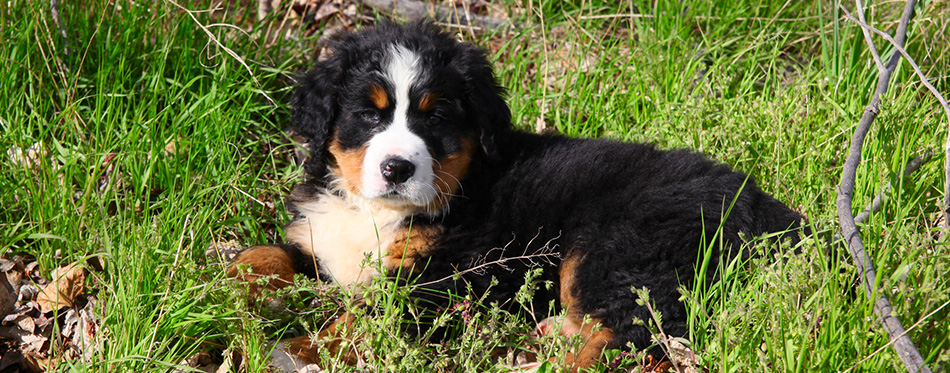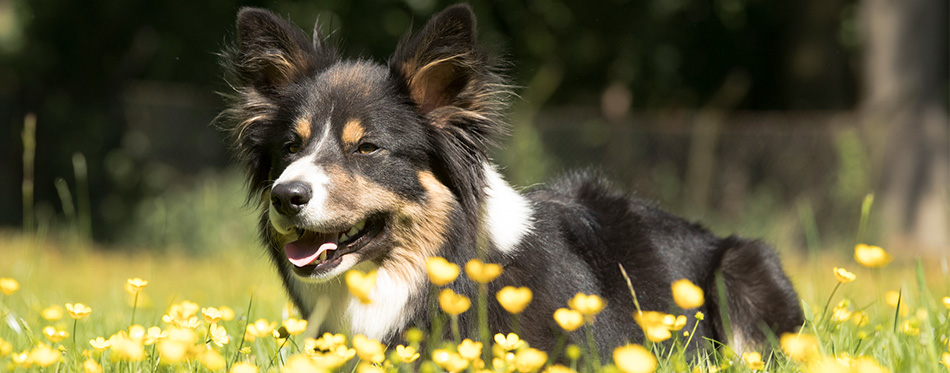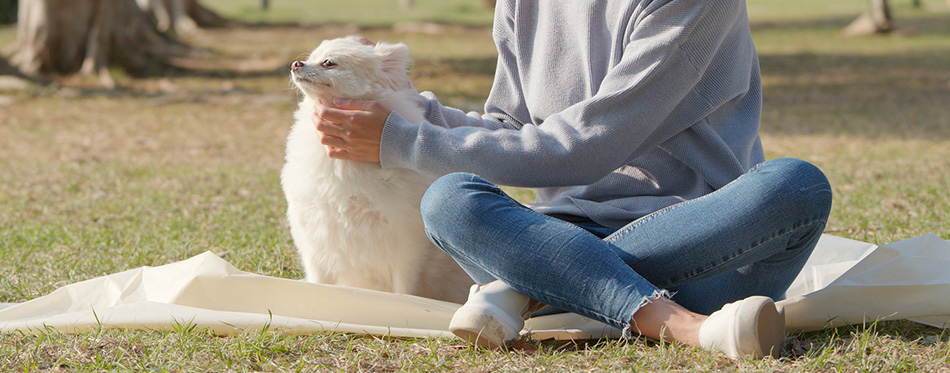Man and dog have a lot of things in common. We both enjoy each other’s company. We both dream, sneeze, and cough. And as we experience occasional hiccups, so do our four-legged friends. Yes, that’s right – dogs hiccup, too. There are dog hiccups at night or right after eating a large meal. And while there is nothing in hiccups that should make you worry about your furry friend, there will be rare instances when you should. Find out more about dog hiccups, why they occur, and what you can do to handle this phenomenon.
What are Dog Hiccups?
Hiccups in dogs are nothing more than the sound produced by the rapid closure of the glottis. This is the structure that guards the common passageway in the larynx or voice box of mammals. The glottis closes during swallowing to prevent the entry of food and liquid into the windpipe or the trachea. During normal breathing where no food or liquid passes down the throat, the glottis remains open. This is to help make sure that there is an efficient movement of air between the outside environment and the lungs.
The question now is why does the glottis close all of a sudden, despite the fact that there is no food or liquid passing through this section of the throat?
The answer lies in the lower section of the pulmonary apparatus. At the base of the lungs is a thin layer of skeletal muscle we call the diaphragm. This is the principal muscle of respiration. When it contracts, it pulls on the lower edges of the lungs to increase lung volume. Increasing the volume of the lung lowers the pressure inside it. Because the pressure in the lungs is lower than the pressure in the atmosphere, air moves in.
Hiccups occur because of the sudden and uncontrollable spasms of the diaphragm. Something irritates the nerves that supply the diaphragm, which cause it to contract all of a sudden. These sudden, forceful, and frequent contractions of the diaphragm lead to the premature closure of the glottis. Remember that an open glottis facilitates airflow. With the closure of the glottis comes the abrupt cessation of airflow. This produces the characteristic “hic” sound that people now associate with hiccups.

What Causes Dog Hiccups?
Hiccups are the result of the sudden and premature closing of the glottis. This has its origins from the involuntary spasms or contractions of the diaphragm following the irritation of its nerve supply. Anything that can irritate these nerves will bring about involuntary spasms of the diaphragm. These have the potential to cause hiccups in dogs. Let’s look at some of the more common reasons why hiccups in dogs occur.
- Very Fast Eating
Dogs that gobble down their meals in a flash are at risk of the occurrence of hiccups a lot more than those that eat slowly. The reason for this is that the stomach tends to get distended at a much faster rate. When dogs eat at a very fast rate, they also introduce air into the stomach. Together with the volume of food, this can push the stomach in all directions. Since the diaphragm lies above the abdominal wall and adjacent to the stomach, this distention can irritate the nerves supplying the diaphragm. This irritation can trigger the spasms that lead to the production of hiccups. Hence, the next time you notice your dog hiccups after eating, you already know why.
For more options head over to our guide on Dog Bowls.
- Eating Certain Foods
Certain foods are also known as gastric irritants. They can either produce excessive gas in the dog’s stomach or irritate the stomach lining in a different way. The point here is that these foods lead to irritation of the stomach, which cause it to contract. Again, by virtue of its proximity to the diaphragm, it can also lead to hiccups. Examples of foods that may cause hiccups are grains and spices.
Take a look at our review of Dog Foods for Sensitive Stomachs for more info.
- Stress
Stress and anxiety can also contribute to the occurrence of hiccups in dogs. Stress facilitates the release of certain chemicals that can cause involuntary muscle contractions or twitching. In some instances, these substances can irritate the nerves of the diaphragm, triggering more forceful and more frequent contractions. Hence, if your dog hiccups in sleep, it is possible that it is having a bad dream. Nightmares translate to stress and causes the glottis to close in an abrupt manner.
- Overexcitement
One can always look at overexcitement as a manifestation of stress in dogs. In other cases, overexcitement can lead to excessive barking. With each bark comes the tendency to introduce more air into the dog’s body. This can also cause an abrupt closure of the glottis, producing the characteristic “hic” sound.
- Some Medications
There are medications that are known to irritate different nerves. For instance, benzodiazepines, opioid pain relievers, muscle relaxants, and corticosteroids are all known to produce hiccups as side effects.
- Exposure to Irritants
Exposing dogs to cigarette smoke and chemical fumes can also trigger hiccups. These air pollutants can irritate the airways, leading to spasms in the other muscles of the respiratory tree.
- Underlying Medical Condition
If your dog hiccups at night and it is not dreaming, there’s a chance that a medical condition is causing it. Some of the most common causes of chronic or sustained hiccups in dogs are diseases of the brain. This can include encephalitis, meningitis, and brain trauma. These conditions can produce erratic nerve impulses which can irritate the nerves supplying the diaphragm. Liver diseases can also cause hiccups because they can irritate the diaphragm. Problems in the phrenic and vagus nerves can also produce hiccups that can last a very long time.

Managing Dog Hiccups
The way you handle dog hiccups is dependent on what is triggering the diaphragm to contract all of a sudden and in a spasmodic fashion. Hence, if your dog hiccups after eating, then you should try modifying the way it eats. Here are a few simple ways in which you can handle dog hiccups.
- Give Water
Sometimes, giving water to your pet is enough to put a stop to its hiccup episode. Drinking allows dogs to regulate their breathing in a slower manner, helping them to reduce the irritation that is occurring at the level of the diaphragm. You may have to improve the taste of water for this to be effective, though. Adding a drop or two of maple syrup or honey should do the trick. If you don’t have any of these, then adding a teaspoon of sugar to your dog’s bowl of water can help. Unfortunately, if your dog hiccups in sleep, you will not be able to employ this remedy. Check out our guides on dog water bottles and dog water fountains for more info.
- Massage Your Pet’s Chest
We said that hiccups are due to the forceful contraction of the diaphragm. Relaxing this large muscle can, therefore, help in stopping the hiccup. Massaging the dog’s chest can help reduce the contractile force of the diaphragm. This can lead to a reduction in the intensity of the dog hiccups, if not stop it altogether.
- Calm Your Pet
For overexcited pets, calming them down can help stop the hiccups. This may take a while, though, since you’ve got to be very adept at calming down your pet. A calm and relaxed pet will be able to regulate its breathing. This is one of the keys to addressing hiccups in dogs.
- Distract Your Pet
If stress is the principal reason for the dog hiccup, distracting it from the stressful situation often helps. Giving your pet its favorite toy should help reduce the intensity of the hiccup. Over time, this will stop it altogether. So, think of different ways in which you can shift your dog’s focus from whatever is making it anxious.
- Be Mindful of How Your Pet Dog Eats
This will not stop hiccups in dogs, but it sure can help prevent them from occurring. One of the things you can do is to slow down your dog’s eating time. If it can finish its meal in under 2 minutes, then you should get a dog food bowl that’s designed to slow down fast eaters. There are different slow dog feeders on the market that you can use. You may also want to try replacing its dog food with low-grain varieties. This should help prevent the occurrence of hiccups.

Know When to Bring Your Pet to the Vet
Dog hiccups resolve on their own. However, if it doesn’t go away after about 5 to 10 minutes, then you should consider having your vet evaluate your pet further. It is clear that hiccups can be a manifestation of a more serious medical problem. The sooner your vet can rule out the presence of these medical problems, the sooner you can resume with your normal activities. You can also employ the same approach if your dog is having hiccups almost every day. Only by determining the exact cause of the hiccup will your vet be able to help you find the most appropriate solution for your dog.
Dog hiccups are a normal phenomenon that should not cause you any worry. However, if it is becoming very frequent or lasts longer than usual, a veterinary visit is a must.
Source:
- Can Dogs Get Hiccups? – AKC

